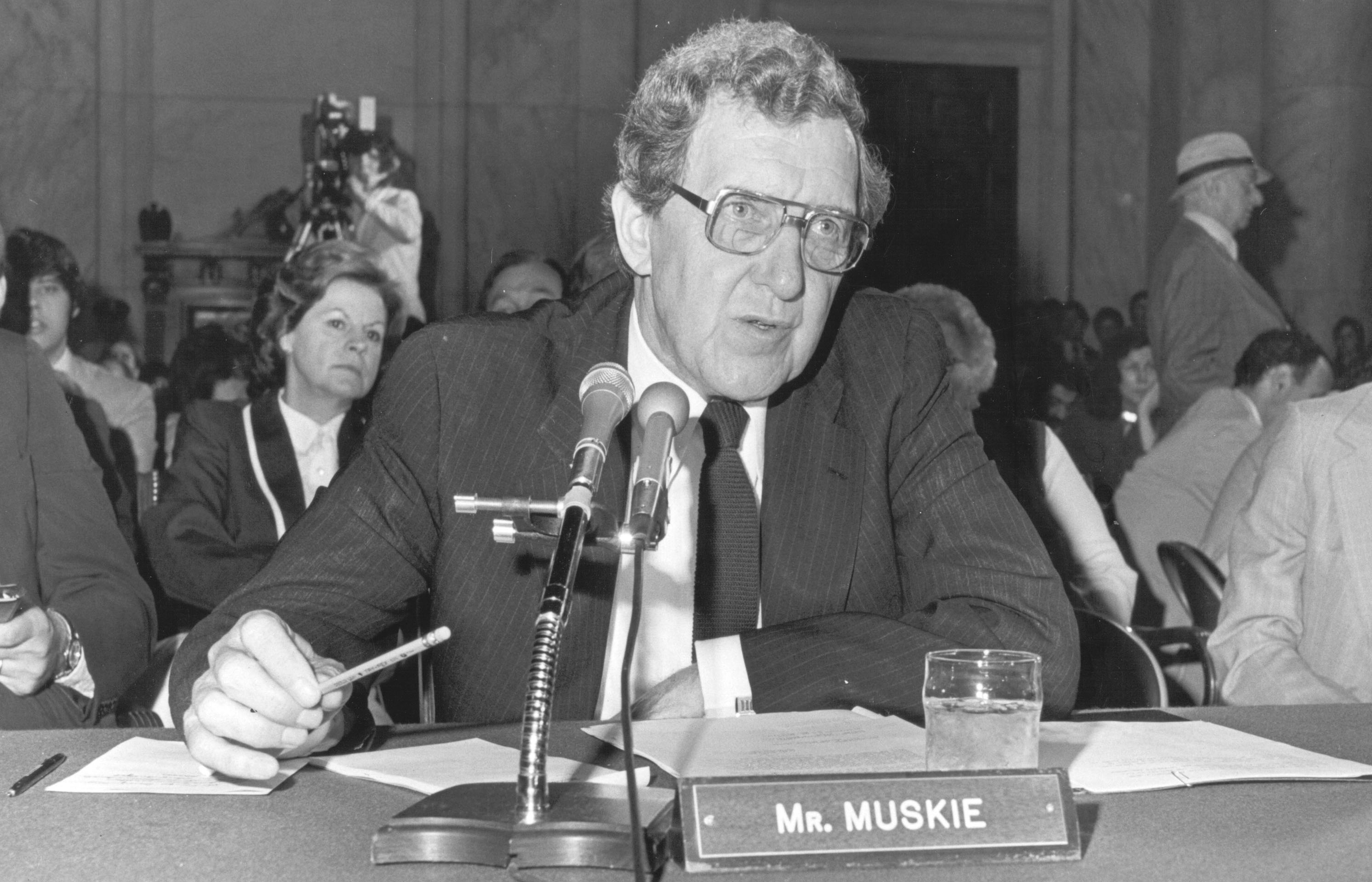
Edmund S. Muskie Oral History Collection
Document Type
Oral History
Loading...
Publication Date
3-22-1999
Interview Number
MOH 074
Abstract
Estelle Lavoie was born in Lewiston, Maine on November 23, 1949 and grew up in Lewiston, the youngest of three children. Her father worked as a building contractor until his death in 1964, after which, her mother worked part-time as a bank teller. She attended St. Peter’s elementary school, Jordan Junior High School, Lewiston High School. She attended Bates College (class of 1971) while living at home, spending her junior year studying in Switzerland. At the end of 1972, she went to work for Governor Ken Curtis. By September of 1973, she had been hired as part of Ed Muskie’s staff, working as a caseworker, and eventual his Legislative Assistant. She attended law school at American University from 1978 to 1981, and remained on staff when Mitchell took over until the fall of 1983. She joined the law firm of Preti, Flaherty, Beliveau & Pachios, in June 1984. Her practice has evolved from health law to other political practice issues. She served on the Democratic State Committee from 1986 to 1990, and was a 1988 delegate to the National Convention.
Use Restrictions
Copyright Bates College. This transcript is provided for individual Research Purposes Only; for all other uses, including publication, reproduction and quotation beyond fair use, permission must be obtained in writing from: The Edmund S. Muskie Archives and Special Collections Library, Bates College, 70 Campus Avenue, Lewiston, Maine 04240-6018.
Recommended Citation
Burnham-Bestor, Marisa, "Lavoie, Estelle oral history interview" (1999). Edmund S. Muskie Oral History Collection. 207.
https://scarab.bates.edu/muskie_oh/207
Second part of interview
MOH_074_02_A.mp3 (9609 kB)
Third part of interview
MOH_074_Transcript.pdf (139 kB)
Transcript


Scope and Content Note
The interview includes discussions of: Muskie’s 1972 Presidential campaign; Muskie’s 1976 Senate campaign; Muskie’s years as Secretary of State; the Budget Act of 1976, the Budget Committee, 1976-1980; environmental protection; the Intergovernmental Relations Subcommittee; housing, including the rehabilitation and subsidization of public housing; her Senate legislative work; Muskie’s sincerity, dedication and temper; Sunshine Government; the Sunset Act which makes legislation periodically expire to see if it is worth having; Maine getting an extra million dollars from Dept. of Health, Education and Welfare in 1973; Muskie’s late career, his 80th birthday party in Washington and Lewiston at the Ramada Inn, and his funeral two years later; Social Security benefits for college students with a deceased parent and surviving parent only working part time; French-Canadian migration to industrial centers of Maine; lack of interest in higher education among Franco-Americans of previous generations; depression as contributing to previous generations’ view of the importance of college; changing social mores of high school; first surgeon general’s warning about smoking in 1963; Nixon’s freeze on government hiring; rebuilding Muskie’s staff in 1976 with Maine people; acquiring Gov. Curtis job through contact with Georgette Berube and Bob Couturier (judge of probate); working on projects in Muskie’s office; her impression of pre-Indian Land Claims Settlement Act of 1980; Washington lobbyists as supplicates; transition to Mitchell from Muskie in the Senate, and Mitchell asking staff to stay until Election of 1982; her impression of differences in partisanship between time of Watergate and Clinton impeachment; Democratic control of both houses of Congress and presidency between 1976 and 1980; Reagan’s landslide win and Congressional shifts; the reauthorization of the Clean Water Act; Mitchell’s gubernatorial bid in 1974; U. S. attorney, 1978; Federal judge, 1979; Emery challenge 1982; her impression of decrease in political involvement and increase in those unenrolled in political party as a byproduct of partisanship in politics; the 1986 election in which Democrats retook the U. S. Congress, Mitchell as majority leader; in 1984, Deputy President Pro Temp created for Mitchell in the Senate; the impeachment of Clinton; the Maine State legislature as part-time, under funded, and under staffed; “citizen legislature” as obsolete because of complexity of legislation; political term limits; the Libra Foundation; and the Dinner for Women Lawyers in Maine with Gloria Steinem as speaker.